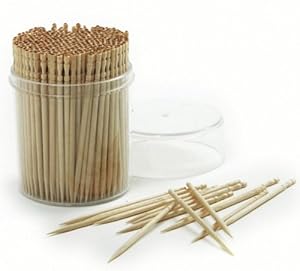"Okay," I say. I have given up asking my autistic adult son why he needs to do things, but he volunteers the information anyway.
"What I get is going to change the world."
 Wow. Pretty tall order for something that can be bought at the Dollar Store. "See you when you get back," I say as I start to stack the dinner dishes. My mind begins to wonder, what can be had for only a dollar, but has the potential to change the world. Washing dishes, up to my elbows in soapsuds, I ponder what was going on in my son's mind. Living on the upper edge of Autism Spectrum Disorder, Allen functions well at his job and is responsible about his car and his cat. But his brain works differently than mine, and while I always attempt to find meaning in what he says and does, sometimes he is downright quirky.
Wow. Pretty tall order for something that can be bought at the Dollar Store. "See you when you get back," I say as I start to stack the dinner dishes. My mind begins to wonder, what can be had for only a dollar, but has the potential to change the world. Washing dishes, up to my elbows in soapsuds, I ponder what was going on in my son's mind. Living on the upper edge of Autism Spectrum Disorder, Allen functions well at his job and is responsible about his car and his cat. But his brain works differently than mine, and while I always attempt to find meaning in what he says and does, sometimes he is downright quirky.Something that will change the world.
I recall small things that have made a big difference. Zippers. Velcro. Chocolate chip cookies. Those little plastic things--aglets--on the ends of shoe laces.
Dishes done, I sit down with a cup of tea and a book. A few minutes later, Allen bursts in the door, a bag in one hang. He stands in front of me with a grin and reaches into the bag. I am going to be included in changing the world. He pulls out the item and hands it to me.

Toothpicks. A round plastic container of toothpicks.
The world is changed.
Allen bounds upstairs to work on his new computer game and I stare at the plastic container. Toothpicks? How will toothpicks change the world? I know there is some connection in Allen's brain, something that makes sense to him.
About an hour later, Allen appears in the living room, dressed in his pajamas. He scoops up his cat and settles onto the love seat.
"About the toothpicks," I begin.
He gives me a bright smile. "They're for the WHOLE family," he says, obviously pleased with himself.

"Hmm," I say. "Thanks. But I don't really understand how toothpicks will change the world."
He spares me the duh, Mom, look. "Didn't you ever get something stuck in your teeth?" he asks.
"Well, sure," I say. "Happens to everyone."
"And isn't it annoying?"
"Yeah. Really annoying."
"Just think, Mom," he patiently explains, "if all the little things that annoy people went away. Then people wouldn't feel frustrated and get in fights. We could all get along and concentrate on other things."
Allen's brain may work differently, I think, but there is nothing wrong with it. This is deep.
"So, toothpicks?" I ask.
He shrugs. "Gotta start somewhere."
And that is how Allen will change the world.
One toothpick at a time.




